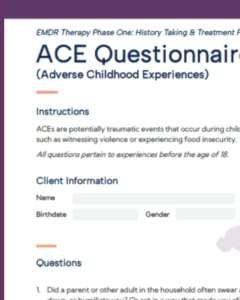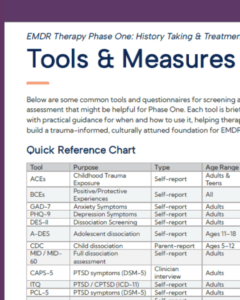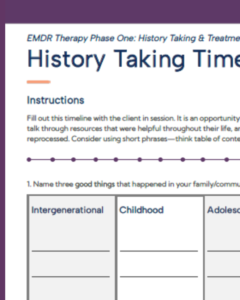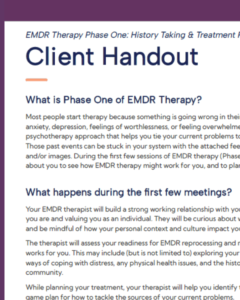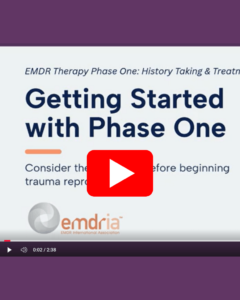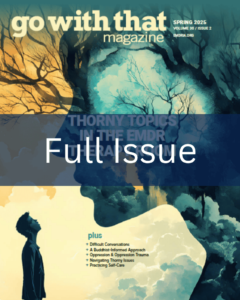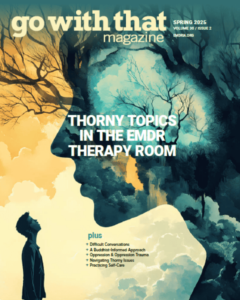ACE Questionnaire (Adverse Childhood Experiences) (Phase 1 Toolkit)
ACEs are potentially traumatic events that occur during childhood (0-17 years), such as witnessing violence or experiencing food insecurity.
Read MoreTools & Measures (Phase 1 Toolkit)
Common tools and questionnaires for screening and assessment for PTSD, anxiety, depression and more during phase one.
Read MoreHistory Taking Timeline (Phase 1 Toolkit)
A visual timeline for organizing client history.
Read MoreClient Handout (Phase 1 Toolkit)
An introductory handout on Phase One of EMDR therapy to share with your clients.
Read MoreIssue-Driven Treatment Planning Video (Phase 1 Toolkit)
This video offers guidance and an example of issue-driven treatment planning during Phase One of EMDR therapy.
Read MoreGetting Started with Phase One Video (Phase 1 Toolkit)
This quick video introduction offers guidance for orienting yourself to Phase One of EMDR therapy and structuring early client sessions.
Read MoreThorny Topics in the EMDR Therapy Room (Go With That Magazine® Issue)
We examine the thorny, sometimes controversial topics that surface in EMDR therapy sessions and the ethics of confronting trauma head-on.
Read MoreCounselor’s Corner: Clients with Aphantasia
EMDR therapists respond to the question, “Who has experience treating trauma with EMDR for clients with aphantasia?
Read MoreCommunity Voices: Cultural Background, Racial Identity, or Political Beliefs
EMDR therapists recall instances when a client’s cultural background, racial identity, or political beliefs posed a challenge in EMDR therapy.
Read MoreSelf-Care Strategies for Navigating Difficult Conversations
Ideas to practice self-care as a therapist during the current political polarization and constant barrage of information and opinion.
Read MoreThorny Topics: Addressing Oppression and Oppression Trauma as Difference in the Room
Talking about differences in the therapy room between therapist and client can be difficult. Here are some tips.
Read MoreTherapeutic Neutrality in an Age of Polarization: A Buddhist-Informed Approach
As an Israeli-born therapist, I watched in horror as events unfolded after Oct. 7th, followed by a surge in global antisemitism.
Read More
